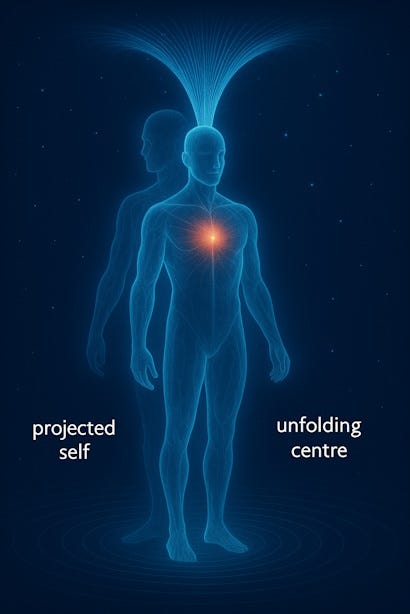
In recent years, a new language of spirituality has spread across the West, echoing through social media, self‑help circles, and even the quiet spaces of therapy rooms. Among its most repeated mantras is the phrase: “You are nothing.” For many, it has become the modern equivalent of enlightenment — a slogan of transcendence that promises freedom from anxiety, identity, and the endless chatter of the mind. Yet the phrase carries a hidden confusion. When people say they have become nothing, what they usually mean is that their external self — the image they have built through thought, habit, and comparison — has temporarily quietened down. What remains is a silence that feels vast, relieving, and free of burden. But this state, though peaceful, is not the end of the journey.
Nothingness, in the Western mind, has come to mean the absence of thought, the blankness that follows when the noise subsides. It is experienced as a relief because the self that constantly seeks validation finally falls silent. Yet the absence of noise is not the discovery of truth. It is only the clearing of the field. Real stillness is not a void but a presence — an alive awareness that continues to move even when the thinking mind has stopped projecting itself. The moment the self dissolves, what emerges is not nothing but everything: the effortless unfolding of life from its own centre.
The idea that enlightenment is nothingness comes from mistaking quiet for completion. True awakening is not the end of experience but its beginning in purity. When the outer self falls away and dissolves into the centre, awareness does not collapse into a vacuum; it opens into fullness with movement now off the centre itself and not of the projected self. The centre of being is never empty — it is dynamically alive, creative, and self‑sustaining and unfolding all the time, just not off the projected self anymore. To call it nothing is to describe it from the outside, from the perspective of what has dissolved. From within, it is everything happening at once, without effort or separation.
So while the modern phrase “you are nothing” may hint at humility, it also hides a subtle error. You are not ever nothing; you are no longer merely the self. What remains is not an absence but a vast presence — the living silence from which thought, love, and creation continue to arise. True enlightenment is not the extinction of being, but the revelation that being itself was never divided in the first place.
Clarification itself carries power, for it is not a passive act of understanding but a living revelation. When something becomes clear, the mind does not simply grasp an idea — it witnesses the centre revealing itself. In that instant of recognition, the movement of awareness is seen as self‑luminous, a quiet yet active unfolding. Clarity is thus the bridge between silence and expression, showing that the true nature of the centre is never inert. It is busy in its stillness, endlessly unfolding through the light of its own understanding.
